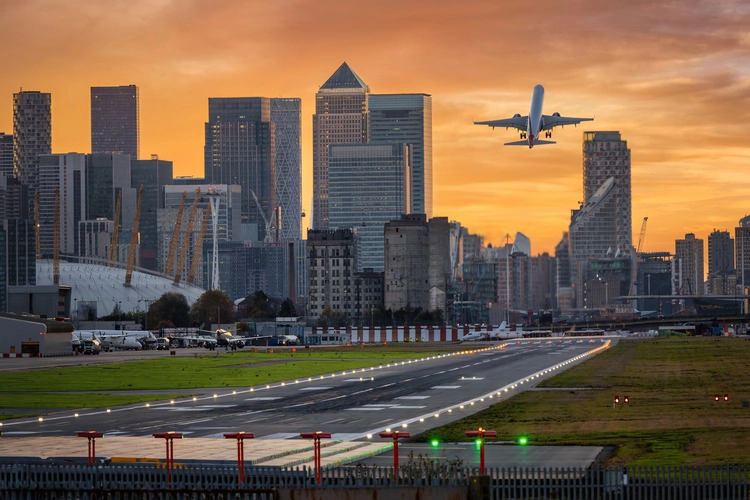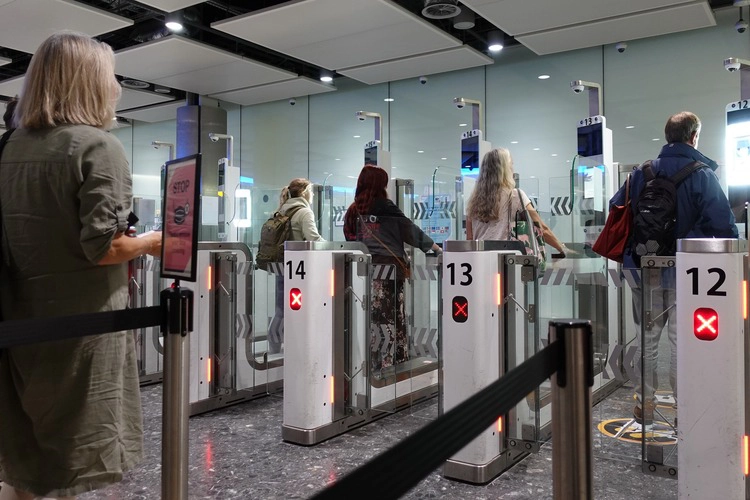
Plan to expand London City Airport and increase passenger capacity has been approved by UK Government after rejection from council last year
By
A new proposal to expand London City’s Airport – soaring passenger capacity from 6.5 million up to 9 million by 2031 – has been approved by the Government in a move that has sparked concern for its impact on the climate and carbon emissions in and around London.
The plan – initially rejected by Newham Council in July 2023 over concerns regarding air quality, noise and climate – will allow an additional 2.5 million passengers to use its facilities per year. In order to do this, London City Airport sought to lift the restriction currently imposed on flights taking off on Saturday afternoons, as well as increasing flights departing before 7am on weekdays. These measures were set in order to minimise noise for nearby residents, and have not been allowed to be lifted by the UK Government, to the disappointment of the airport.
The impact of expanding
The airport’s smaller aircraft – which are less efficient than their larger counterparts – means passengers who use London City Airport contribute 60 per cent more carbon emissions than any other airport in the city on the same routes. The expansion is set to add around 230,000 tonnes of carbon-equivalent emissions to the atmosphere each year, until 2050 – the same as adding 165,000 additional cars to UK streets each year.
Ultra-frequent flyers will reap the benefits of this proposal too. According to analysis conducted by NEF and Possible, an estimated 43 per cent of seats were taken by passengers who make more than six or more return trips a year. London City Airport is also predominately used for short-haul flights – in 2019, 33 per cent of flights taken were on routes that could be completed on trains, for example Amsterdam, Edinburgh and Glasgow, while a further 31 per cent of destinations were reachable with only one train connection.
In total, 900,000 tonnes of carbon equivalent emissions were caused by passenger journeys from London City Airport in 2019 alone.

‘It’s incredibly disappointing that the new government has failed its first test on climate, and allowed the expansion of this polluting, high-carbon project,’ said senior campaigner at climate charity Possible, Alethea Warrington.
‘London City Airport’s expansion will benefit only the private jet users who fly into the airport, at the expense of more air pollution for Londoners and more emissions that harm our climate.’
As well as concerns over noise disturbance, recent research conducted by Transport and Environment has shown that ultrafine particles released by airplanes may be causing significant health problems to individuals, posing a further risk to the physical health of residents near London City Airport.
‘The new Minister for Transport must explain why the government has ignored the clear scientific consensus on constraining aviation emissions – along with the advice of their own scientific advisors, the Climate Change Committee, which recommended no increase in the UK’s airport capacity – in favour of allowing more planes and more pollution,’ Warrington said.




